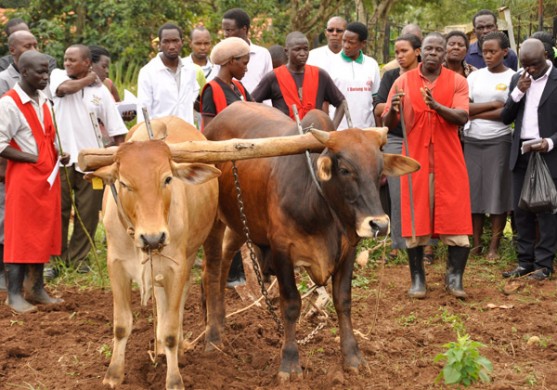The Potential of Camel Production in Resilience Building to Climate Variations in Karamoja, Uganda (CAPREC)
1.0 Background
Camels are able to survive well in the semi-arid areas due to their biological and physiological adaptations which help them cope with harsh environmental conditions. However, little is known why the Karamojong are slowly and increasingly adopting camels, and how wide spread the camels are in Karamoja, as well as their contribution to the pastoral livelihoods resilience against climate variability. Further, there is a dearth of information on the camel product value chain in Uganda.The project therefore intends to investigate the potential contribution of camel production in resilience building for the pastoral households in Karamoja, with specific reference to (i) Mapping their spatio-temporal distribution; (ii) Determining the factors influencing pastoralist’s choice of camel production; (iii) Determining the contribution of camel production to household well-being; (iv) Identify and articulate the performance of camel products value chain; and (v) Determining the influence of camel production on pastoralist household resilience in Karamoja.
2.0 Research Institution
Two Master’s students will be enrolled to study and carry out their research at Makerere University under the supervision of the Project’s Technical team members.
3.0 Duration
24 months with no possibility for Extension
4.0 Roles and Responsibilities
- Draw up a research wok plan in consultation with the supervisor(s)
- Complete and Submit a research proposal by the end of the first 6 months of recruitment
- Carry out research required to achieve the intended research objectives
- Keep relevant records of all aspects of the research work
- Meet regularly with the supervisor and give weight to any guidance or corrective action proposed, keeping a written record of discussions where appropriate
- Reflect and report on the progress of work at the end of each month
- Write a complete research report (MSc. Thesis) within the stipulated time as per the demands of Makerere University
- Write publishable manuscripts from the research
- Take ultimate responsibility of his/her academic programme as stipulated by Makerere University
- Attend all meetings organised by the CAPREC project as and when required
- Inform the supervisor(s) in case of absence from research activities for example in the case of illness
- Perform any other research task as may be required by the supervisor (s)
5.0 Reporting
The student shall report to the immediate supervisor and when necessary, to the PI of the CAPREC project
6.0 Qualifications and Skills
- Should have a first class or second upper bachelor’s degree in either Forestry, Environment, agricultural economics
- Should:-
a. Meet the requirements of admission to Makerere University for a Masters in Science program
b. Have basic analytical skills using econometrics and other statistical packages
c. Have good communication and writing skills
d. Have a positive attitude and a strong commitment to conduct research in the Karamoja region
- Shall successfully undergo an oral interview convened by the Principal Investigator at a date to be communicated upon being shortlisted
NB:Having successfully completed the first year at MSc. Level in any of the specified areas is an added advantage.
7.0 Entitlements and Remuneration
- Tuition and functional fees
- Research costs
- Material support for research requirements
- A performance-based monthly stipend
8.0 Application procedure
- Interested applicants with the above requirements (section 6.0) should submit one soft copy (PDF format) and one hard copy of their applications enclosed with:-
a. A CV with three references and their contact details
b. Photocopies of the relevant academic documents
c. A Motivation letter/statement (Maximum of 2 pages)
d. Two recommendation letters
- Applications should be addressed to:
Dr. Justine J. Namaalwa
Department of Environmental Management
School of Forestry, Environmental and Geographical Sciences
Forestry Building, Room 213
Makerere University,
P.O. Box 7062,
Kampala Uganda.
- Applications in both soft and hard copy should be E-mailed (namaalwa@caes.mak.ac.ug) and delivered in person, not later than 31st July 2015 at 5:00PM, to;
NB: FEMALE students are strongly encouraged to apply


 General2 weeks ago
General2 weeks ago
 Natural Sciences2 weeks ago
Natural Sciences2 weeks ago
 Agriculture & Environment1 week ago
Agriculture & Environment1 week ago
 Health2 weeks ago
Health2 weeks ago
 General5 days ago
General5 days ago


